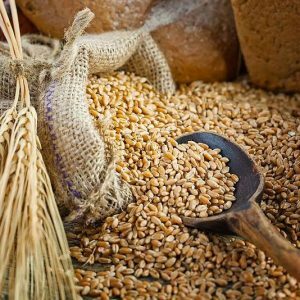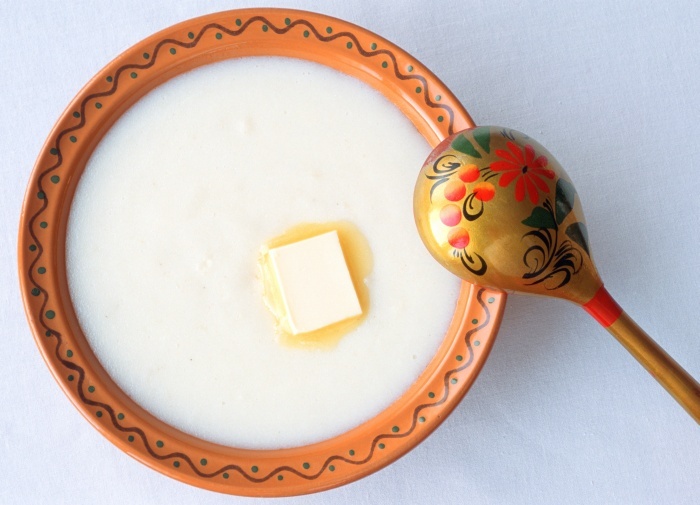How to normalize stool in an adult
Bowel problems can occur at any age, and the influence of external factors only enhances this. Severe stress, excessive use of potent drugs, a sedentary lifestyle and an unbalanced diet lead to disruption of stool and the functioning of the digestive system. This condition cannot be called safe for health, because the work of the intestines affects the content of nutrients in the blood, hormones, as well as the state of the immune system. Therefore, you need to know how to normalize stool in an adult.

How to normalize stool in an adult
Content
-
1 Constipation
- 1.1 What affects the appearance of constipation
- 1.2 Symptoms
- 1.3 Video: Causes of constipation
-
2 Diarrhea
- 2.1 Causes
- 2.2 Symptoms
- 2.3 Video: Why there is liquid stool
- 3 Diagnostic features
-
4 Stool normalization methods
- 4.1 Pharmacy preparations
- 4.2 Nutrition
- 4.3 Treatment with traditional medicine
-
5 Prevention measures
- 5.1 Video - How to normalize bowel function
Constipation
This is a violation of the gastrointestinal tract, which is accompanied by the absence of normal bowel movements for a day or more. The patient's diet and habits play an important role in bowel function and affect the frequency of bowel movements. Let's take a look at the main causes and symptoms of constipation.
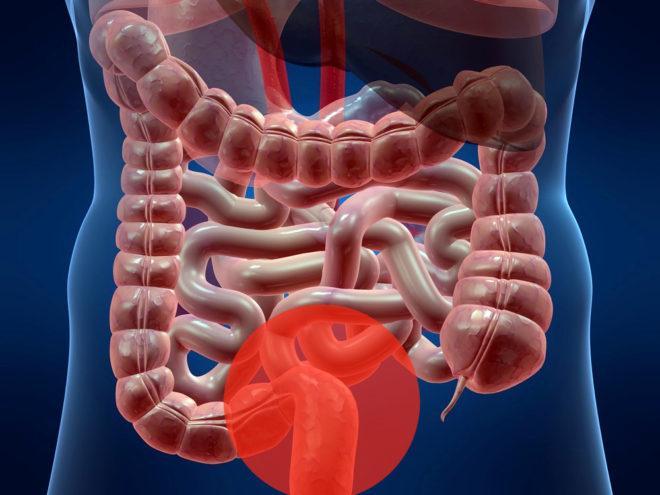
Constipation
What affects the appearance of constipation
Constipation (or, as it is also called by doctors, constipation) often appears after surgery, severe stress, or when moving - for example, while traveling. Such types of constipation go away on their own after a certain time and doctors do not attribute them to diseases. If constipation appears often enough, then in this case you need the help of a specialist.

15 reasons for constipation
The most common causes of constipation include:
- decreased muscle tone of the intestines;
- changes in the functionality of the intestine or its structure, which interferes with the normal movement of feces;
- violation of proportionality between the volume of the contents of the intestine and the large intestine;
- unbalanced diet;
- bad habits;
- insufficient activity.
This is not the whole list of causal factors that can provoke constipation.

Psychosomatics of constipation
Symptoms
Recognizing constipation is very easy and does not require any tests or special skills. Signs of constipation look like this:
- the intestines are not emptied for several days;
- the act of defecation lasts long enough;
- there is discomfort or pain during bowel movements, since this process requires a lot of stress;
- even after the completion of the act of defecation, the patient feels heaviness in the abdomen, there is a feeling of incomplete emptying of the intestines;
- the abdomen becomes more firm, bloating is observed;
- the consistency of feces is fairly dry and dense. At the time of bowel movement, the patient may notice bleeding.
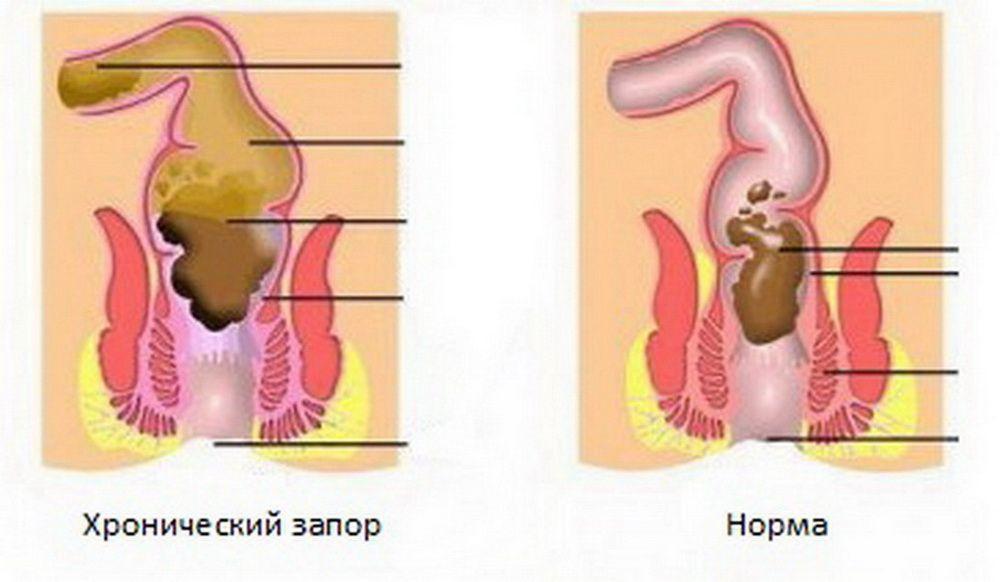
Chronic constipation
The combination of all these symptoms may indicate the development of serious diseases, so they cannot be ignored. Otherwise, complications may arise, including inflammation of the rectum (proctosigmoiditis), secondary colitis, hemorrhoids, fissure in the anus and other equally serious pathological conditions. Only a timely visit to a doctor will help prevent their development.

Haemorrhoids
Video: Causes of constipation
Diarrhea
Diarrhea, or, as it is popularly called, diarrhea is a common symptom of many pathologies of the gastrointestinal tract, which have different causes. This disease means a patient's condition, in which bowel movements become more frequent with an altered stool character. When diarrhea occurs, other symptoms may occur, for example, fever, bouts of nausea, and abdominal pain.
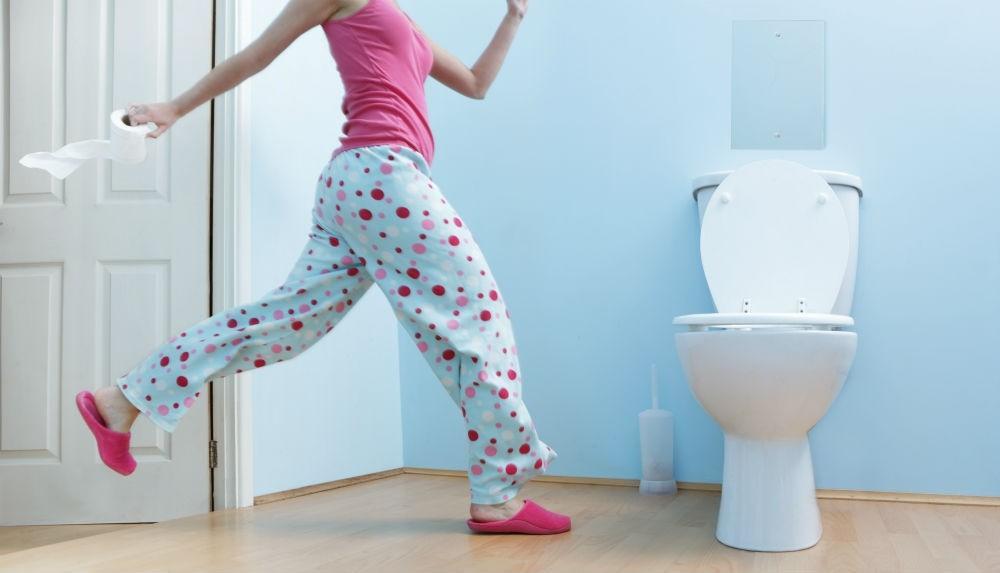
Diarrhea is a common symptom of many diseases
Causes
There are a number of factors that can trigger diarrhea. The most common ones include:
- Crohn's disease, ulcerative colitis, and other autoimmune diseases;
- fermentopathy;
- sluggish bowel syndrome;
- intestinal dysbiosis caused by prolonged use of anti-cancer or antibacterial drugs;
- infectious pathologies of the digestive system (salmonellosis, food poisoning, cholera);
- violation of intestinal motility.

Types and causes of diarrhea
On a note! Some hereditary diseases can also lead to the appearance of an ailment, during the course of which the patient's body does not tolerate certain substances and products. Among such diseases, it is worth highlighting liver cirrhosis, lactase deficiency (lactase is a special an enzyme involved in the breakdown of lactose), acute / chronic pancreatitis, celiac disease and others disease.

Classification of lactase deficiency
Symptoms
Diarrhea is often accompanied by additional symptoms for which the doctor makes a diagnosis. The main signs of diarrhea include:
- the appearance of mucous or bloody discharge in the feces;
- the remains of undigested food in the stool;
- bowel movements - usually mushy or liquid;
- stool color may differ from normal, as well as smell;
- weak bowel syndrome (fecal incontinence);
- frequent urge to defecate.

Signs of diarrhea
In addition to the aforementioned symptoms, the patient may notice the appearance of additional symptoms:
- pain in the abdomen. It can be of a different nature (cutting, pulling, dull);
- heat;
- severe nausea.
If the diarrhea continues for a long time, it will soon lead to dehydration of the patient's body. The clinical picture of dehydration:
- cachexia;
- the appearance of "flies" before the eyes (floating opacities that can be seen when blinking);
- light-headedness;
- tachycardia attacks;
- severe dizziness, decreased blood pressure;
- drying out of the oral mucosa, constant thirst;
- general weakness of the body.

How to determine if the body is dehydrated
It is impossible to hesitate with the treatment of diarrhea, because this can lead to serious complications. Therefore, at the first suspicious symptoms, you should immediately consult a doctor. Only he is able to correctly diagnose and prescribe the appropriate treatment.
Video: Why there is liquid stool
Diagnostic features
As a rule, no difficulties arise when making a diagnosis. This is done based on the symptoms described by the patient. But with the identification of the cause of the pathological condition, everything is much more complicated. For this purpose, various laboratory tests (feces, blood, urine) are carried out to identify pathogenic microorganisms that can cause dysbiosis. Also, the doctor may prescribe fluoroscopy or ultrasound, in rare cases, sigmoidoscopy is performed.
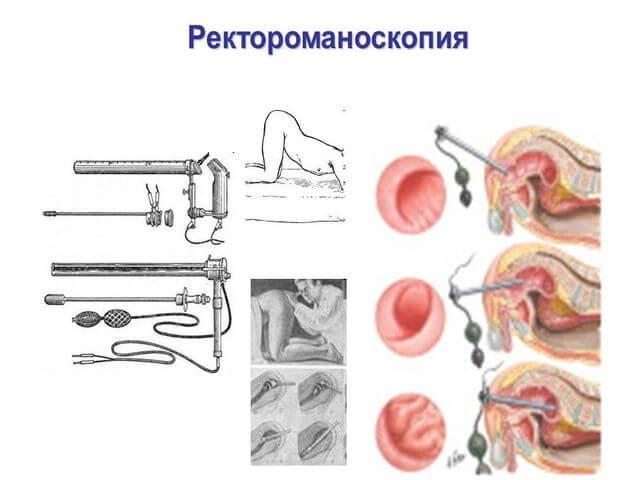
Sigmoidoscopy
If the doctor suspects the development of any gastrointestinal disease, then he prescribes the patient to undergo a complete gastroenterological examination, which includes:
- instrumental data;
- laboratory research;
- general examination and collection of anamnesis.

Laboratory research
Based on the results obtained, the doctor makes a diagnosis. Only after that you can start treating the disease or normalizing the bowel function.
Stool normalization methods
It is impossible not to notice the problems that have arisen with the work of the digestive system. Often, such violations are accompanied by painful sensations or discomfort, so the patient immediately tries to get rid of the problem. To improve the work of the intestines, various methods are used, starting with taking medications, and ending with therapeutic exercises and folk remedies. Let's consider each of the methods separately.

Stool normalization
Pharmacy preparations
Various medications can be used to improve the functioning of the digestive system. With their help, you can get rid of diarrhea, constipation, and also normalize the intestinal microflora. But you need to understand that the choice of a medicine should be dealt with by a doctor, or it should be under his control. The most effective remedies are presented below.
Table. Review of drugs to normalize bowel function.
| Name of the drug, photo | Description |
|---|---|
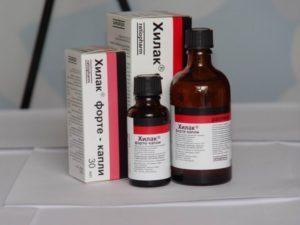 Hilak forte |
An excellent medication used in violation of intestinal microflora and other problems with the digestive system. The composition includes the products of the synthesis of normal microflora, therefore, the drug helps to restore all functions of the intestinal mucosa. This refers to both biological and physiological functions. Often used to treat diarrhea or other bowel problems. |
 Phytolax |
In fact, this is not a drug, but a dietary supplement (dietary supplement). It is often prescribed by doctors as an effective drug to support all of the patient's bowel functions. Also used as an adjunct to other medications. |
 Enteroleptin |
The composition of this drug includes extracts of yarrow, propolis, chamomile, bergenia and other medicinal plants. The drug has analgesic, antiseptic and anti-inflammatory properties. It is used for dysbiosis and other gastroenterological diseases. |
 Isabgol |
Another medication used to normalize bowel function. Consists of environmentally friendly components, which makes this drug safe even for children. Regular intake of the medication helps to normalize the stool, facilitate bowel function. |
 Lactuvit |
A hypoammonic drug belonging to the group of polysaccharides. It has antibacterial and regenerating properties. Its action is to accelerate the processes of lactose breakdown, as a result of which the production of lactic acid increases and, as a result, the digestive system normalizes. |
 Good luck |
This drug is prescribed for the treatment of intestinal dysbiosis, constipation, as well as for recovery after surgery on the colon. The drug has some contraindications, therefore, before using it, you need to consult with your doctor or at least a pharmacist. |
 Bifiform |
Used in medicine in the treatment of various types of intestinal disorders. This includes irritable bowel syndrome, intestinal flora, and diarrhea. The medicine has no contraindications, except perhaps for hypersensitivity to individual components. |
On a note! If the pathological condition of the intestine does not improve long enough, it is imperative to undergo a medical examination. Perhaps this is not ordinary food poisoning, but something more serious. In any case, it is not recommended to ignore this.
Nutrition
Diet plays an important role in the functioning of the gastrointestinal tract and its health. Constant snacking on the run, alcohol abuse, an abundance of junk food in addition to chemical dyes that contain many products - all this has a bad effect on health and often leads to disruption of the intestinal path. You need to know how a diet can help stabilize it.
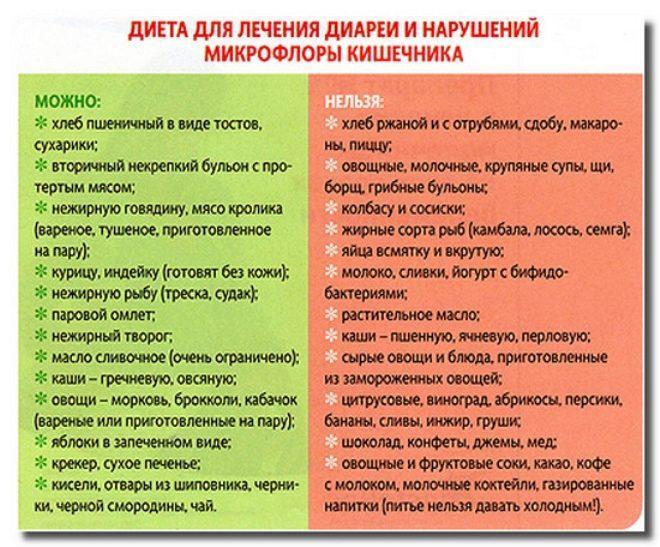
Diet to treat diarrhea
First of all, you need to review and, if necessary, completely change the diet. If before you ate no more than 3 times a day, as most of us do, now the food should be fractional. This means that you need to eat often, but the portions should not be large. Thus, you unload the digestive system, as a result of which it will begin to work much better. In addition, you need to eat at about the same time. This is the golden rule for good bowel function. Try to make it a habit.

Proper nutrition
When you eat, try not to be distracted by watching a movie or reading the newspaper. This can lead to the fact that you eat much more food than you need at one meal. Many people tend to eat a lot after suffering stress. This is wrong, because such food will not be useful to the body, but rather, on the contrary, it will harm it. You also need to limit the amount of foods that negatively affect intestinal motility.
Treatment with traditional medicine
Many people use proven traditional medicine recipes to complement traditional treatments. There are many different recipes, but not all of them are truly effective. The most common remedies include prune decoction. To prepare it, you need to pour a little prunes with warm water and leave for 20-30 minutes. Take the resulting broth throughout the day, and eat the remaining prunes. This will help to normalize the stool.

Prune decoction
For this purpose, various medicinal plants are used, which have a positive effect not only on the functioning of the intestines, but also on the entire body of the patient as a whole. As a rule, decoctions and infusions are prepared from them. Most often, anise, string, St. John's wort, dandelion, mint, flax, yarrow, ginger and other plants are used in folk medicine. All medicines are prepared according to the same principle: first you need to boil water, grind a little plant, then pour boiling water over a few tablespoons of chopped herbs and leave from 10 to 40 minutes. Take the finished product 2-3 times a day. You can notice positive changes almost immediately.

Chamomile decoction
If treatment with folk remedies did not give the desired result and the bowel function did not return to normal, you need to start treatment with more serious pharmaceutical preparations. To do this, see your doctor. As a supplement to all the above methods of treatment, doctors recommend performing remedial gymnastics. This does not mean that you can forget about taking medication. Gymnastics is just an addition. For this purpose, there are special exercises, the regular implementation of which contributes to the normalization of the digestive system.
Prevention measures
Many pathologies can be prevented, including constipation, diarrhea and other manifestations of intestinal malfunction. To do this, you need to follow some rules:
- eat right. Try to avoid junk foods, do not overeat, and the maximum interval between meals should not be more than 5 hours;
-
give up bad habits. Smoking and alcohol negatively affects the entire body, including the digestive system. To avoid constipation, you need to quit smoking and abuse alcohol;
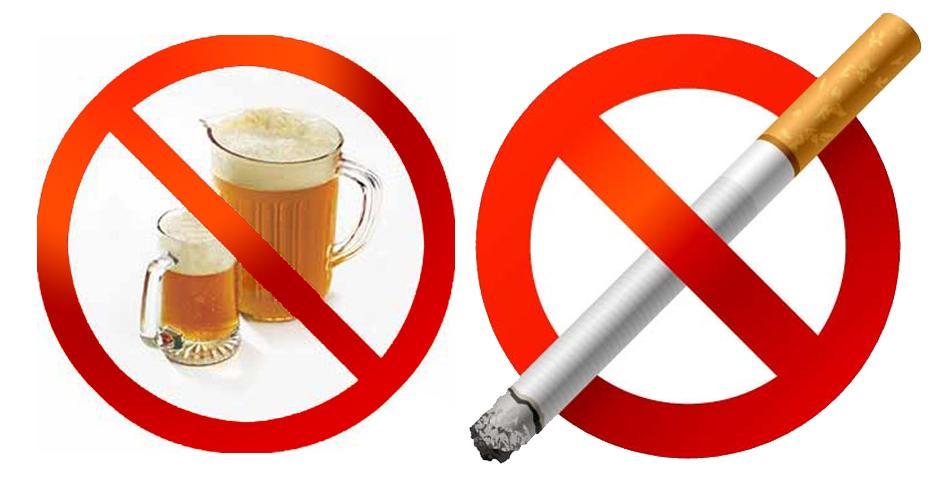
Rejection of bad habits
- adjust your diet. Add more fiber to it. This will improve metabolic processes in the body. These products include walnuts, dairy products, buckwheat, rice and other types of cereals, fresh vegetables and fruits;
-
exercise regularly, especially if you are sedentary. Lack of physical activity often causes problems with the functioning of the digestive system. We are not talking about excessive stress, at which you can easily earn a hernia. It is enough to go swimming or cycling several times a week. Dancing is also good for this role;

Sports and nutrition
- learn to relax. As mentioned earlier, gut problems can be triggered by a lot of stress, so if you work in a stressful job, such as a bank teller, it's best to switch. Yoga classes are great for relaxation;
- observe the drinking regime. The consistency of the stool affects the permeability of feces through the large intestine, therefore it is necessary to drink a sufficient amount of liquid. The recommended dose for an adult is 1.5-2 liters. This applies not only to pure water, but also to other drinks. Of course, it is better to give preference to fresh compotes than carbonated drinks or tea. This is much more useful.

How much water should you drink per day
As you have already seen, it is possible to normalize bowel function and bowel movements without any problems. With the right approach, the problem can be easily solved, and most importantly, to prevent its reoccurrence. You just need to slightly change your rhythm of life, make adjustments to the diet, acquire a new hobby in the form of sports. All this is the key to health.

